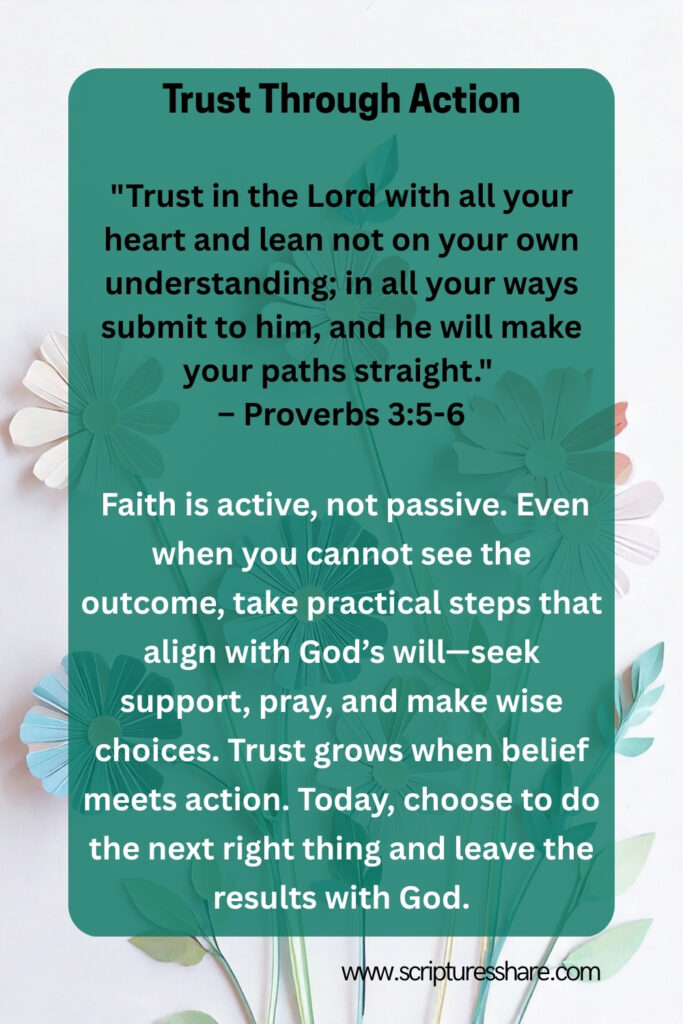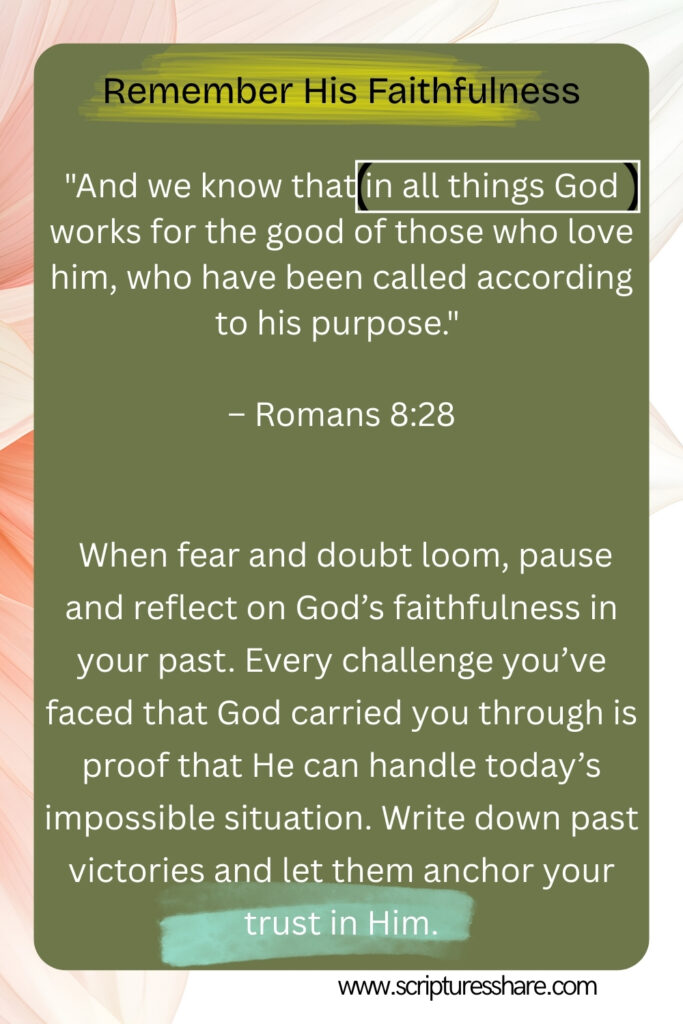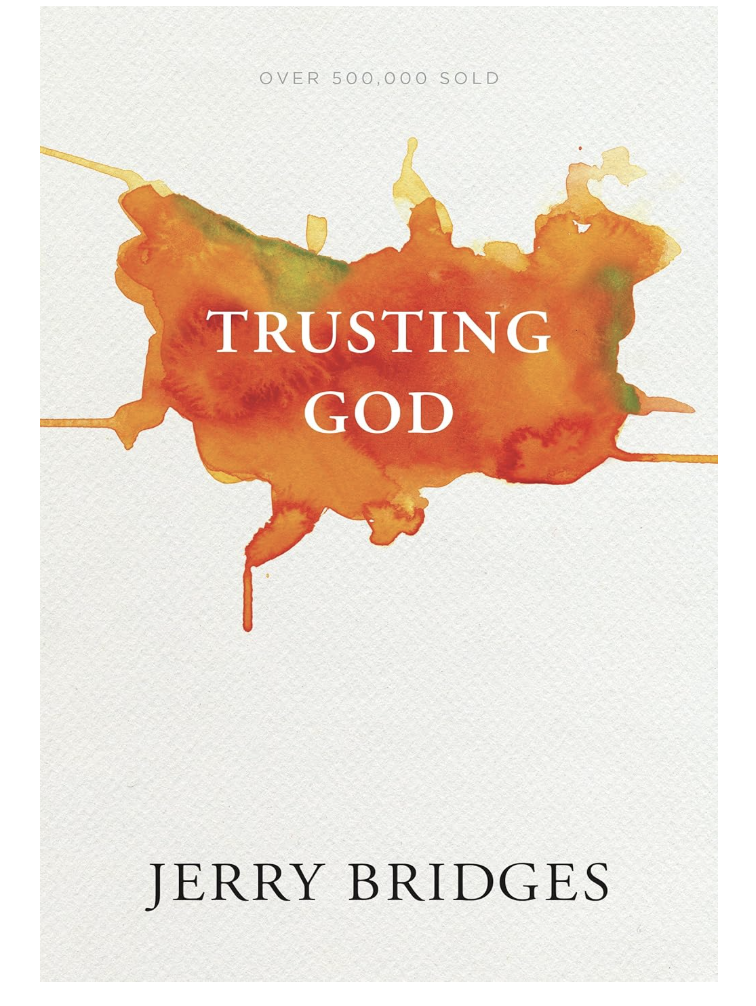No products in the cart.
How To Trust God When Things Seem Impossible?
This post contains paid and/or affiliate links. I make a small commission at no extra cost to you. Please see our Privacy Policy.
Life has a way of throwing curveballs that leave us questioning everything we thought we knew. Maybe you’re facing a terminal diagnosis, drowning in debt, watching a marriage fall apart, or dealing with a rebellious teenager who’s making dangerous choices. In these moments, well-meaning friends might say “just trust God,” but that advice can feel hollow when you’re staring at seemingly impossible circumstances.
The truth is, trusting God during impossible situations isn’t about flipping a spiritual switch or pretending everything is fine.
It’s a deliberate choice that requires both faith and practical action. Here’s how you can cultivate genuine trust in God when your world feels like it’s crumbling.

Understanding What “Impossible” Really Means
Before diving into how to trust God, we need to reframe what impossible actually looks like from a spiritual perspective. What seems impossible to us often represents the exact moments where God’s power becomes most evident.
The Bible is filled with impossible situations that became platforms for divine intervention:
- Abraham and Sarah having a child at 100 and 90 years old
- Moses parting the Red Sea with Pharaoh’s army closing in
- David defeating Goliath as a shepherd boy
- Jesus feeding 5,000 people with five loaves and two fish
“Jesus looked at them and said, ‘With man this is impossible, but with God all things are possible.'” – Matthew 19:26
The Foundation of Trust: Knowing God’s Character
Trust isn’t built on wishful thinking or positive vibes. It’s built on knowing the character of the person you’re trusting. When circumstances scream one thing, but God’s character says another, that’s where faith steps in.

God’s Unchanging Nature
Unlike people who might let us down, God’s character remains constant regardless of our circumstances. He is:
- Faithful – He keeps His promises even when we can’t see how
- Loving – His love for you doesn’t fluctuate based on your situation
- Sovereign – He’s in control even when everything feels chaotic
- Good – His intentions toward you are always for your ultimate good
Building Blocks of Trust in God
Level 5: 🌟 Active Faith & Surrender
⬆
Level 4: 🙏 Prayer & Community Support
⬆
Level 3: 📖 Remembering Past Faithfulness
⬆
Level 2: ✨ Understanding God’s Character
⬆
Level 1: ⚡ Acknowledging the Impossible Situation
7 Practical Steps to Trust God in Impossible Circumstances
1. Acknowledge Your Feelings Honestly
God can handle your raw emotions. David, described as a man after God’s own heart, regularly poured out his frustrations, fears, and complaints in the Psalms. Pretending you’re fine when you’re not doesn’t demonstrate faith – it demonstrates denial.
Action Step: Write out your honest feelings about your situation. Don’t edit yourself or try to sound spiritual. Just be real.
2. Remember Past Faithfulness
Your current impossible situation isn’t the first challenge you’ve faced. Look back at times when God provided, protected, or guided you through difficulty. These memories become anchor points for your faith.
Action Step: Create a “faithfulness journal” listing specific ways God has shown up in your life before.
3. Focus on What You Know, Not What You Don’t Know
In impossible circumstances, there’s usually more unknown than known. Instead of fixating on all the question marks, anchor yourself in what you know to be true about God’s character and promises.
Action Step: Make two columns – “What I Don’t Know” and “What I Do Know About God.” Spend more time meditating on the second column.

4. Take the Next Right Step
Trust isn’t passive waiting. It’s active obedience to whatever God is asking you to do right now, even if you can’t see how it connects to solving your bigger problem.
“Trust in the Lord with all your heart and lean not on your own understanding; in all your ways submit to him, and he will make your paths straight.” – Proverbs 3:5-6
5. Surround Yourself with Faith-Filled Community
Isolation amplifies fear and doubt. Intentionally connect with people who can remind you of God’s faithfulness when your own faith feels shaky.
Action Step: Identify 2-3 people you can be honest with about your struggles and who will pray with you regularly.
6. Limit Information Overload
Constantly researching your problem, reading worst-case scenarios online, or obsessing over news can fuel anxiety and make trusting God harder. Set boundaries around consuming information that feeds fear.
7. Practice Surrender Daily
Surrender isn’t a one-time decision. It’s a daily choice to release control and trust God’s plan, even when you can’t understand it.

The Trust vs. Control Spectrum
| High Control, Low Trust ⬇ | Low Control, High Trust ⬇ |
|---|---|
| • Constant worry | • Peace despite uncertainty |
| • Micromanaging outcomes | • Open hands toward God |
| • Sleepless nights | • Rest in God’s sovereignty |
| • Relationship strain | • Deeper faith relationships |
| • Spiritual dryness | • Spiritual growth |
When Trusting God Doesn’t Change Your Circumstances
Here’s what nobody talks about enough: sometimes trusting God doesn’t result in the outcome you wanted. The illness doesn’t heal, the job doesn’t come through, the relationship doesn’t restore. This doesn’t mean God failed or that your faith was insufficient.
Trust in God isn’t ultimately about getting what we want – it’s about finding peace, purpose, and strength in the midst of whatever we’re facing. It’s about believing that God can work even the most painful circumstances for our good and His glory.
“And we know that in all things God works for the good of those who love him, who have been called according to his purpose.” – Romans 8:28
Red Flags: When “Trusting God” Becomes Unhealthy
While faith is crucial, it’s important to recognize when spiritual language is being used to avoid taking appropriate action:
- Using “faith” as an excuse to avoid medical treatment
- Refusing to address abusive relationships because you’re “trusting God to change them”
- Making irresponsible financial decisions and calling it “stepping out in faith”
- Ignoring warning signs because you’re “believing for the best”
True trust in God often includes taking wise, practical steps while depending on Him for the outcome.
Building Trust Through Community and Prayer
Trusting God during impossible times isn’t meant to be a solo journey. Biblical faith is community faith. When your own faith feels weak, you can lean on the faith of others who are walking alongside you.
Practical Community Ideas:
- Join a small group focused on prayer and Bible study
- Find a mentor who has weathered similar storms
- Consider Christian counseling if you’re dealing with trauma or mental health challenges
- Participate in a support group related to your specific situation

Chart: The Ripple Effects of Trust
TRUSTING GOD
↓
┌────────────────────────────────────────────────────┐
↓ ↓ ↓ ↓
INCREASED BETTER STRONGER GREATER
PEACE RELATIONSHIPS RESILIENCE PURPOSE
↓ ↓ ↓ ↓
Less anxiety Deeper connections Ability to help Clarity about
Better sleep More vulnerability others in similar what matters
Clearer thinking Stronger marriages situations most
Moving Forward: Trust as a Journey, Not a Destination
Learning to trust God in impossible circumstances isn’t about reaching a point where you never doubt or worry again. It’s about developing the habit of returning to trust more quickly when fear tries to take over.
Some days your trust will feel rock-solid. Other days it might feel paper-thin. Both are normal parts of the journey. What matters is that you keep choosing to trust, even when it’s hard, even when it doesn’t make sense, even when you can’t see how God could possibly work things out.
The beautiful thing about impossible circumstances is that they create space for God to show up in ways that leave no doubt about His involvement. When situations are beyond human ability to fix, God gets all the credit for the breakthrough.
Taking the Next Step
If you’re facing an impossible situation right now, start small. You don’t have to muster up enormous faith overnight. Begin with whatever trust you can genuinely offer, even if it’s just a whispered “God, I want to trust you, but I’m scared. Help me.”
That honest, vulnerable prayer is often the beginning of a deeper trust than you ever thought possible.
Remember: God isn’t intimidated by your impossible situation. He’s been waiting for you to invite Him into it. The very thing that feels like it might destroy you could become the platform for the greatest display of God’s faithfulness you’ve ever witnessed.
Have you experienced God’s faithfulness in an impossible situation? What helped you learn to trust during that difficult season? Share your thoughts in the comments below.















